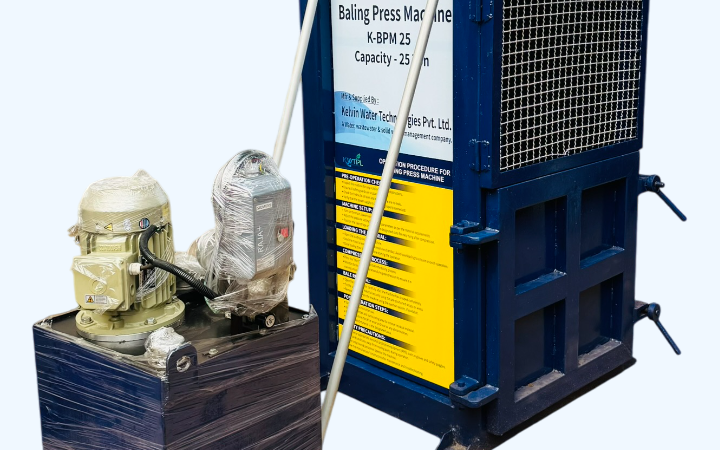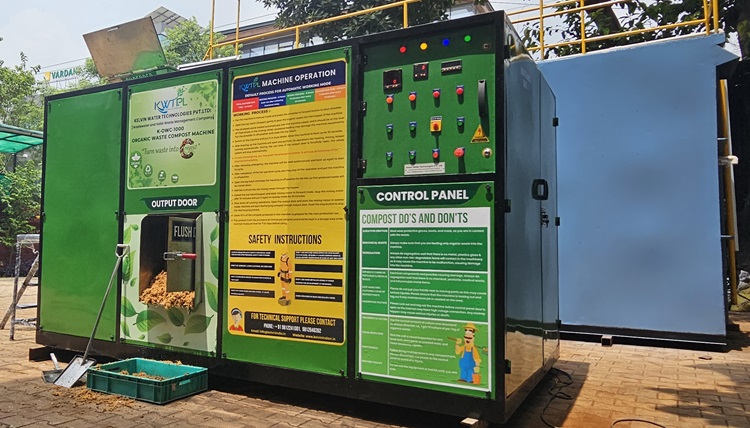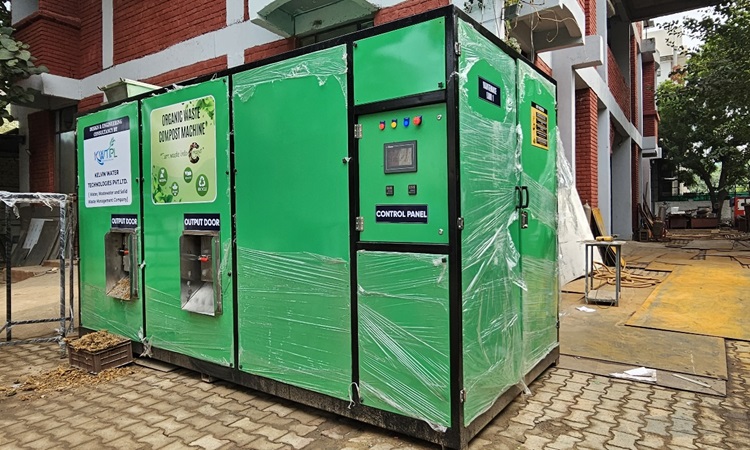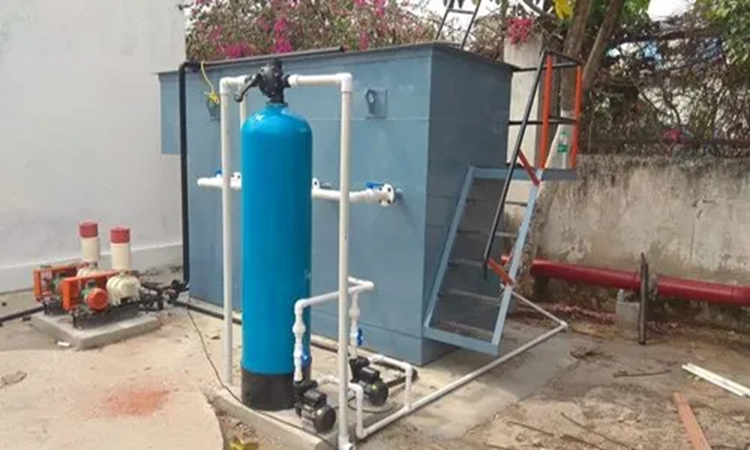Importance of an Effective Waste Management System
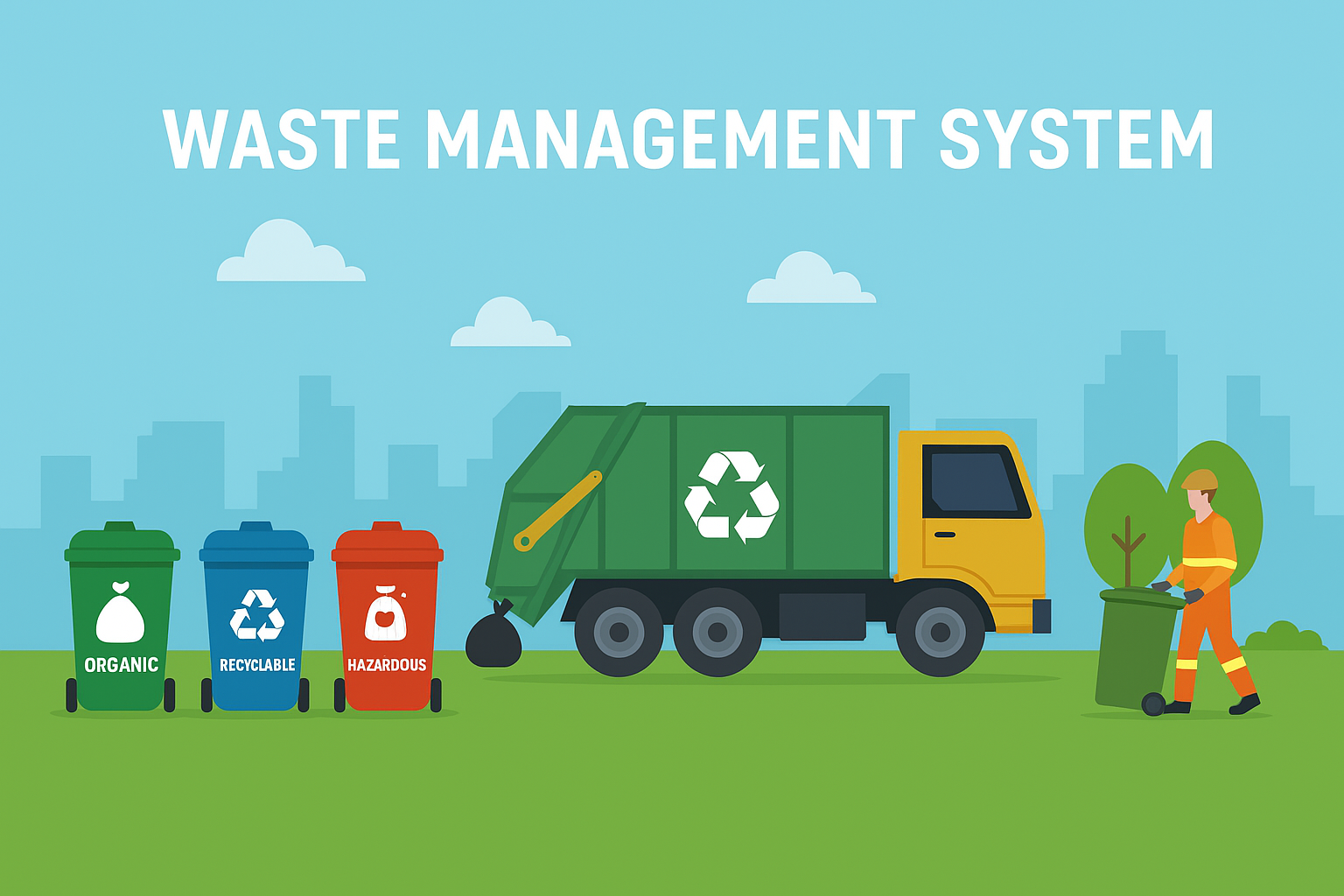
Waste Management System
In today’s world, rapid urbanization, industrial growth, and population expansion have drastically increased the amount of waste generated daily. Managing this waste responsibly is one of the biggest environmental challenges of our time. An efficient waste management system is essential not only for maintaining public hygiene but also for conserving natural resources and protecting our planet for future generations.
Proper waste management involves the systematic collection, transportation, processing, recycling, and disposal of waste materials in a way that minimizes environmental impact. Whether it’s municipal, industrial, or biomedical waste, having an organized management system ensures cleaner cities and a healthier ecosystem.
What is Waste Management?
Waste management refers to the processes and actions required to manage waste from its inception to its final disposal. This includes monitoring, collection, transportation, treatment, and proper disposal of waste, along with the regulation and monitoring of the waste management process.
The main goal of a waste management system is to reduce the harmful effects of waste on human health and the environment. With sustainable practices like recycling and composting, valuable resources can be recovered, reducing the strain on natural ecosystems.
Why is Waste Management Important?
An effective waste management system brings multiple environmental, economic, and social benefits:
- Environmental Protection – Reduces pollution, minimizes greenhouse gas emissions, and prevents contamination of soil and water sources.
- Resource Conservation – Recycles materials like paper, metal, glass, and plastics to reduce the extraction of raw materials.
- Public Health Improvement – Proper waste disposal prevents the spread of diseases and ensures a hygienic environment.
- Energy Generation – Waste-to-energy plants convert non-recyclable waste into usable electricity and heat.
- Economic Value Creation – Encourages new business models in recycling, composting, and green innovation sectors.
Types of Waste in a Waste Management System
Different waste types require distinct handling methods within a waste management system. Below are the key categories:
- Municipal Solid Waste (MSW): Everyday household garbage, packaging, and non-hazardous commercial waste.
- Industrial Waste: Waste produced by manufacturing and processing industries.
- Biomedical Waste: Hazardous waste generated from hospitals and healthcare facilities.
- Electronic Waste (E-Waste): Discarded electronic products like computers, phones, and batteries.
- Hazardous Waste: Chemicals, solvents, and toxic materials that require specialized disposal methods.
- Organic Waste: Food scraps and biodegradable materials that can be composted to create organic fertilizer.
Key Components of a Modern Waste Management System
A robust waste management system includes multiple integrated processes designed to ensure sustainability and efficiency:
1. Waste Collection and Segregation
The first and most crucial step is source segregation — separating biodegradable, recyclable, and hazardous waste at the point of generation. This step improves recycling rates and reduces landfill loads.
2. Waste Transportation
Collected waste is safely transported to treatment or disposal facilities using covered and well-maintained vehicles to prevent littering and leakage.
3. Waste Processing and Recycling
Recyclable waste like paper, plastic, and metals is sorted and processed to manufacture new products. This circular approach conserves resources and reduces energy consumption.
4. Composting and Organic Waste Treatment
Organic waste from households, markets, and restaurants can be converted into nutrient-rich compost using organic waste composters or in-vessel composting systems. This reduces landfill dependency and promotes sustainable agriculture.
5. Energy Recovery
Through waste-to-energy (WTE) technologies, non-recyclable waste incinerated to produce electricity and heat, turning waste into a valuable energy resource.
6. Final Disposal
Non-recoverable waste is safely disposed of in engineered landfills with leachate collection systems and methane gas capture to prevent pollution.
Role of Technology in Waste Management System
Modern waste management systems are increasingly adopting smart technologies to improve efficiency and transparency. Some key advancements include:
- IoT-enabled bins for real-time monitoring of waste levels.
- GPS tracking for optimized waste collection routes.
- Automated sorting systems using AI and robotics for faster recycling.
- Smart composters and biogas units for on-site organic waste treatment.
- Data analytics platforms for waste tracking, reporting, and resource optimization.
Best Practices for Efficient Waste Management
- Segregate waste at source – Separate dry, wet, and hazardous waste at the household or institutional level.
- Reduce and Reuse – Minimize waste generation by using reusable products.
- Encourage Recycling – Support recycling programs and use recycled materials.
- Adopt Composting – Compost organic waste to create eco-friendly fertilizer.
- Raise Awareness – Conduct campaigns and education programs on responsible waste disposal.
- Partner with Experts – Collaborate with professional waste management system providers for effective and compliant waste treatment.
Future of Waste Management Systems
The future of waste management systems lies in the concept of a circular economy, where waste viewed as a resource rather than a problem. With growing awareness, stricter regulations, and technological innovation, the next generation of waste management will focus on zero waste and sustainable recycling solutions.
Emerging trends include smart city waste monitoring, AI-based recycling plants, decentralized composting units, and bio-based waste treatment technologies. These advancements are driving India and other nations toward cleaner and greener cities.
Conclusion
An effective waste management system is no longer optional—it is a necessity for building a sustainable and livable future. From reducing pollution to conserving resources, waste management plays a pivotal role in environmental protection and economic growth.
As individuals, communities, and industries adopt eco-friendly waste handling practices, we collectively move closer to a zero-waste future. The time to act is now—because managing waste efficiently today ensures a cleaner and healthier planet tomorrow.



